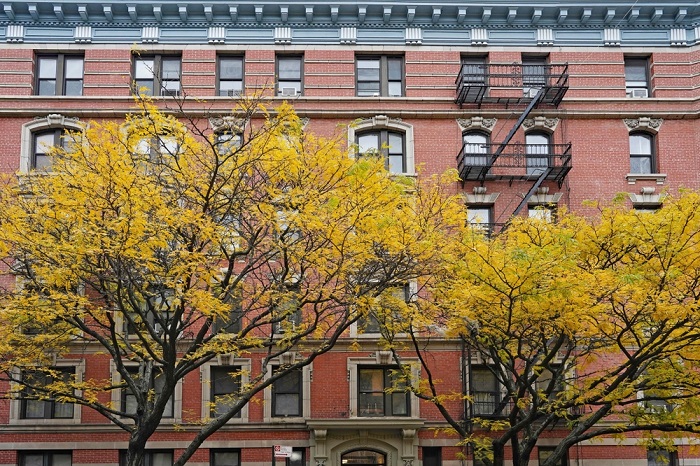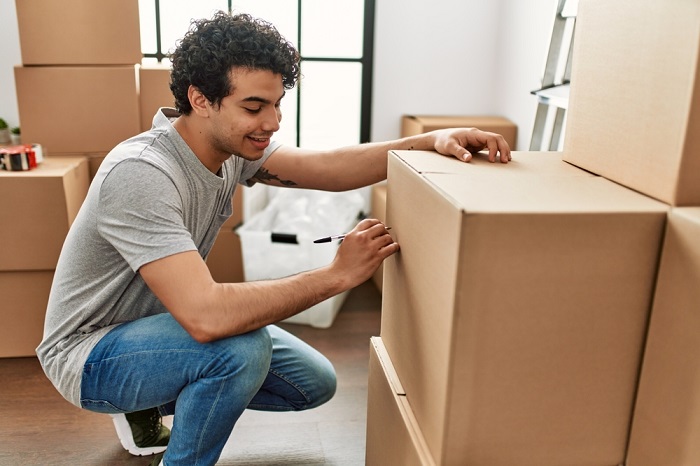
Moving into an apartment in the fall is usually cheaper than moving any other time. No one wants to move during the cold and wet months, so apartment complexes offer incentives to get people to sign leases during this time. Think “lower temps equals lower prices.” Regardless of season and costs, moving isn’t fun. Don’t completely give up the thought of moving just yet. Here are helpful tips to make your autumn move to your new apartment a cool breeze.
Do Your Research First
Many landlords offer perks to get prospective tenants to sign a lease, especially in the fall. Before you jump on a deal one presents you, create a list of non-negotiables, know your cost-of-living budget, and read reviews from previous tenants before you settle. This is extremely important if you're moving to a new state, because it’s not as convenient to visit as if you were just moving across town. Use Trulia or Zillow to help you filter out apartment complexes that don’t check off your list of non-negotiables.
Tour Apartments and Neighborhoods

Going on apartment tours is time-consuming, but being meticulous now will pay off in the long run. The last thing you want is to find out that your new apartment doesn’t have an in-unit washer and dryer. Plus, the weather won’t be too hot or too cold, so you’ll be comfortable walking in the apartments and outside. When you tour apartments, take note of the following:
- Drafts that could mean the apartment might not be well insulated
- Security measures such as cameras, lights, and gates
- Any damage that may not have been fixed properly
- Any bug or rodent infestation
- Distance from your apartment to grocery stores, restaurants, bars, and gyms
- Crime rate in your neighborhood
Once you’ve assured yourself that the apartment you’re checking out might be a suitable home, you can start worrying about the other steps in the moving process.
Know Your Budget
While you may have come across a sweet deal for an apartment, it’s still good to know how much money you’ll need to save up for your move. Most landlords or property managers will ask for the first and last month’s rent, and you might have to pay additional fees upfront. Some extra fees you may incur are:
- Application fee
- Pet fee
- Renter’s insurance
- Utilities like water and trash
- Moving services and storage
Setting a budget is always a good practice in general, as you don’t want to come up short on important expenses.
Money-Saving Tip: Some apartments include Wi-Fi in the cost of rent, so be sure to ask the property manager or landlord if internet service is an amenity. |
Read the Fine Print of Your Lease Agreement

Rental agreements are long and full of words you probably don’t even recognize, but they’re extremely important to read. Grab a cup of coffee and search on Google for any legal terminology you don’t understand. Read the agreement thoroughly because it’s legally binding. While reading, note any confusing parts so you can bring them up with the apartment management. A few key factors to know are your move-in and move-out dates, the length of a move-out notice, the day rent is due, and if you're allowed to sublet.
Spread Out Your Packing Days
If you procrastinate and leave tasks to the last minute, especially packing, you’ll find yourself panicking and unnecessarily stressing out. Before anything, plan the days you’ll spend packing. Dedicate one day to packing the kitchen and another for miscellaneous items. Also, labeling your boxes is a must. Take it a step further and list everything in the box on the label.
Don’t forget to leave a box of snacks out so you have something to eat during breaks. If you’re moving with pets, take them to a pet daycare for the day. Animals can sense when changes are happening, and this may cause stress. Fall is also not a busy season, so you might be able to request time off work more easily than in spring or summer. The more days you have to pack, the less stressful the move will be.
Stay Organized on Moving Day
The day you move is always stressful because you can’t predict what might go wrong. Keep calm. You’ll want to check with the leasing office to see how many days they’ll allow you to move in. At some places, you won’t be allowed to park the moving vehicle in their parking lot for more than a day or two.
Once you get an answer, you’ll want to make a schedule with your moving company or your friends and family if they’re helping. Make sure you have a “Moving Day” bag of essentials that includes a change of clothes, hygiene items, chargers, and snacks. Then, before you move any boxes into your new apartment, take pictures of any damage that you see so that you can show the property manager or landlord.

Once the documentation is done and you’re starting to move your boxes, take them to the correct room. This will make unpacking easier, especially if you only have time to place the boxes in the room rather than unpack everything inside. Essentially, you have to find what works best for you. It’s a stressful process that can become even more stressful if you don’t align it with your lifestyle.
Your moving system could be unpacking a few boxes a day, unpacking all the boxes for a room at once and then organizing that room, or maybe drinking copious amounts of coffee and getting it all done in one day. Whatever your system, being organized and well rested is key.
Change Your Address
Whenever you move, whether it’s to a house or an apartment, you need to file a change of address with the post office and notify your banks so they don't flag your account. You'll also want to notify your insurance provider because rates change based on location. This might be the most difficult step because you need to remember which institutions and providers will need to know that you no longer live at the old address. Unless you still have access to the old address, you want to make sure you receive important documents, such as bills, at your new address.

